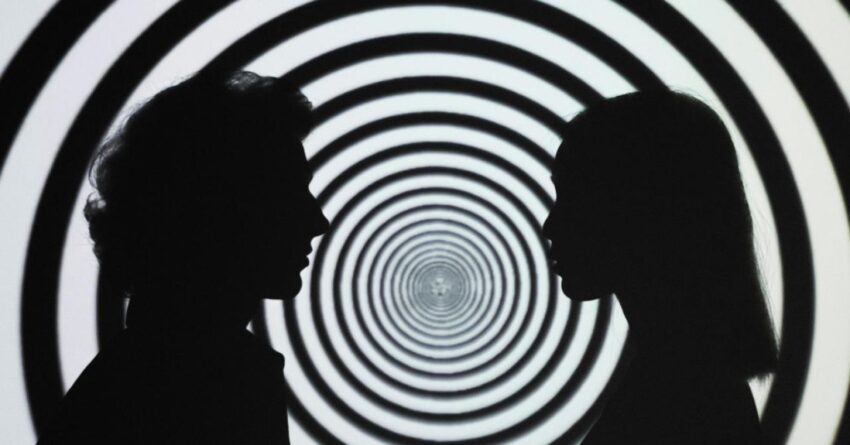For those who struggle with anxiety, finding effective coping techniques can be life-changing. While therapies like cognitive behavioral therapy are widely used, for many, traditional treatment methods like therapy and medication don’t fully alleviate their symptoms. If you’re looking for an additional tool to manage your anxiety, clinical hypnotherapy, and subsequent self-hypnosis are definitely worth considering.
What Is Hypnosis?
Hypnosis is really just focused attention in a relaxed state. It utilizes the power of relaxed and focused attention to help people change negative thought patterns and behaviors associated with anxiety. Despite some misconceptions, when you are under hypnosis, you do not lose control over your behavior, and you get to choose whether or not to follow the therapist’s suggestions. You are simply guided by a certified hypnotherapist to enter a deeply relaxed and focused mental state.
How Hypnosis Works for Anxiety
Hypnosis offers a powerful tool for managing anxiety by allowing access to the subconscious mind. During hypnosis, one enters a deeply relaxed yet focused state of heightened awareness. In this state, the mind becomes more open to positive suggestions that can reshape deeply ingrained patterns of thinking and responding to stress.
Hypnotherapy for anxiety works by implanting new perspectives and coping mechanisms into the subconscious. Rather than automatically reacting with anxious thoughts and behaviors, hypnotic suggestions can train the mind to remain calm and react more adaptively to triggers. Numerous studies demonstrate the efficacy of hypnosis in providing significant relief for those struggling with anxiety disorders.
The trance-like hypnotic state facilitates this reprogramming of the subconscious by circumventing the conscious mind’s resistance to change. Worries, fears, and destructive thought loops can be disrupted and replaced with more positive, rational responses. With regular practice reinforcing the new thought patterns, hypnosis helps restructure how the subconscious processes and responds to stressful stimuli over time.
During hypnosis, a person is guided into a deeply relaxed state that allows them to bypass their conscious mind and access their subconscious. In this state, the hypnotherapist can make suggestions to help reshape unhelpful thoughts and behaviors around anxiety triggers. For example, the therapist may help the person visualize a peaceful setting whenever they feel anxious or to reframe the way they perceive a stressful situation.
Hypnosis can be an effective complementary treatment for anxiety in several ways:
1. Relaxation: One of the main goals of hypnosis is to induce a deep state of relaxation and calmness. This relaxed state can counter the physiological symptoms of anxiety, such as rapid heartbeat, muscle tension, and shallow breathing.
2. Suggestion therapy: During hypnosis, the therapist can give positive suggestions to the patient’s subconscious mind. These suggestions can help reframe negative thought patterns, boost self-confidence, and promote a more positive outlook, which can alleviate anxiety.
3. Desensitization: Hypnosis can be used to gradually expose the patient to anxiety-provoking situations or stimuli in a controlled environment. This process, known as desensitization, can help the patient become less reactive to these triggers over time.
4. Emotional regulation: Hypnotic techniques can help individuals better regulate their emotions, making it easier to manage anxiety when it arises.
5. Stress management: Hypnosis can teach individuals self-hypnosis techniques and coping strategies to manage stress more effectively, which can reduce the likelihood of anxiety episodes.
6. Symptom relief: For specific anxiety disorders like phobias or post-traumatic stress disorder (PTSD), hypnosis can be used to alleviate specific symptoms, such as intrusive thoughts or flashbacks.
Our minds have an innate protective mechanism that manifests as emotions like fear or panic. Over time, our subconscious learns to amplify these responses. Essentially, the fight-or-flight response gets triggered, even when there is no actual physical danger.
We experience fear or panic in social situations, public speaking, or when making mistakes at work. Our reaction becomes disproportionate to the situation, leading to extreme anxiety. Often, these responses stem from automatic, subconscious thought patterns.
For instance, a past negative experience with public speaking may have caused our subconscious to induce anxiety as a protective measure, preventing similar experiences in the future. With repetition, these feelings become deeply ingrained to the point of being debilitating.
Hypnosis empowers individuals to examine and explore these subconscious, automatic thoughts. It enables recognition and alteration of these patterns. Richard Branson, for example, had a negative public speaking experience early in life, leading him to avoid it for years. Through hypnosis, he associated positive emotions with public speaking, altering his automatic responses.
Finding a Qualified Provider
It’s important to note that hypnosis should be practiced only by a qualified and licensed professional with proper training. It is often used as a complementary treatment alongside other therapies, such as cognitive behavioral therapy (CBT) or medication, for the best results in managing anxiety disorders. Look for therapists who have completed courses through organizations like the American Society of Clinical Hypnosis or the National Guild of Hypnotists. Many psychologists, social workers, and counselors incorporate hypnosis into their practices.
Why Are So Many People Anxious?
Anxiety has numerous triggers. Stressful situations, trauma experiences, and difficult interpersonal relationships can act as catalysts for anxiety. We feel the trigger, and then, automatically our brains respond. Our thoughts race. Our palms sweat. And we feel the anxiety in our bodies.
These triggers are deeply ingrained in our subconscious, often lurking undetected until a stressful stimulus awakens them. We might not even know they exist until we experience stressful stimuli. In such moments, our brains delve into the subconscious, seeking guidance on how to react.
In other words, anxiety, then, is a conditioned response, a reflex born of past experiences etched into our psyche.
